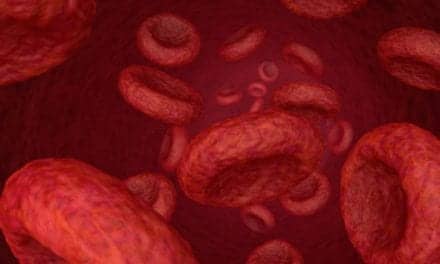To help scientists continue their research and development and ensure research continuity, Arctoris, Oxford, UK, established a broad range of remotely accessible covid-19 assays. These include biochemical profiling for covid-19 drug targets as well as cellular and molecular assays conducted in its state-of-the-art robotic facility in Oxford. “To discover new treatments for covid-19 requires profiling novel compounds against key targets in both biochemical and cellular contexts,” says Daniel Thomas, PhD, head of discovery biology at Arctoris. “Pursuing these steps in parallel expedites the generation of comprehensive data sets critical to progress new compounds towards the clinic. Our platform enables these activities to be executed at an unprecedented quality and speed, while ensuring greater depth of data and insights.” A recently completed project saw Arctoris deploying its unique platform, guided by an expert team of drug discovery scientists, to rapidly generate mechanistic pharmacology for both marketed and research inhibitors against the JAK family of kinases. The possible candidates were identified by Novartis and other pharma companies for covid-19 repurposing. Four target-based assays (JAK1, JAK2, JAK3, and TYK2) were developed, optimized, and fully automated in a total of less than 100 hours, generating comprehensive datasets containing more than 1 million data points. In addition to making its advanced robotic capabilities available to researchers around the world, the Arctoris team is also directly involved in projects that aim at enabling population-level screening for covid-19. Martin-Immanuel Bittner, MD, DPhil, Arctoris co-founder and CEO, co-led a research project focused on increasing testing capacity for covid-19 by developing a mathematical decision support tool which can aid testing efforts making use of sample pooling approaches. Thanks to the high sensitivity of PCR-based diagnostic approaches, several patients’ samples can be assessed in one test, only continuing with further tests if the pooled test came back positive, thereby saving time and resources. Sample pooling approaches are now under investigation by several countries worldwide, including the United States, Germany, and India. The research project was funded by the Young Academy of the German National Academy of Sciences, bringing together a team of mathematicians and computer scientists from the Technical University of Braunschweig, the University of Stuttgart, and Arctoris. The results of the work are already available through a preprint on arXiv and as an open access online tool that can be used by frontline medical staff, lab technicians, and policymakers.1,2 “This study is unique in that we bring together expertise from the academic and the corporate sector to provide a theoretical framework and practical guidance on how to maximize the number of people that can be tested during the covid-19 pandemic,” says Martin-Immanuel Bittner, MD, DPhil, CEO of Arctoris and one of the lead authors of the study and member of the Young Academy of the German National Academy of Sciences. “The results of this research project show that by adopting sample pooling approaches, we can increase testing capacity by a factor of eight with the current lab infrastructure.” For more information, visit Arctoris. Reference 1. de Wolff T, Pflüger D, Rehme M, Heuer J, Bittner MI. Evaluation of pool-based testing approaches to enable population-wide screening for covid-19. arXiv:2004.11851 [q-bio.PE]. 2. Online Tool for Scenario-Based Mass Testing for COVID-19. University of Stuttgart. Available at https://ipvs.informatik.uni-stuttgart.de/sgs/cgi-bin/JA/covid19/.




